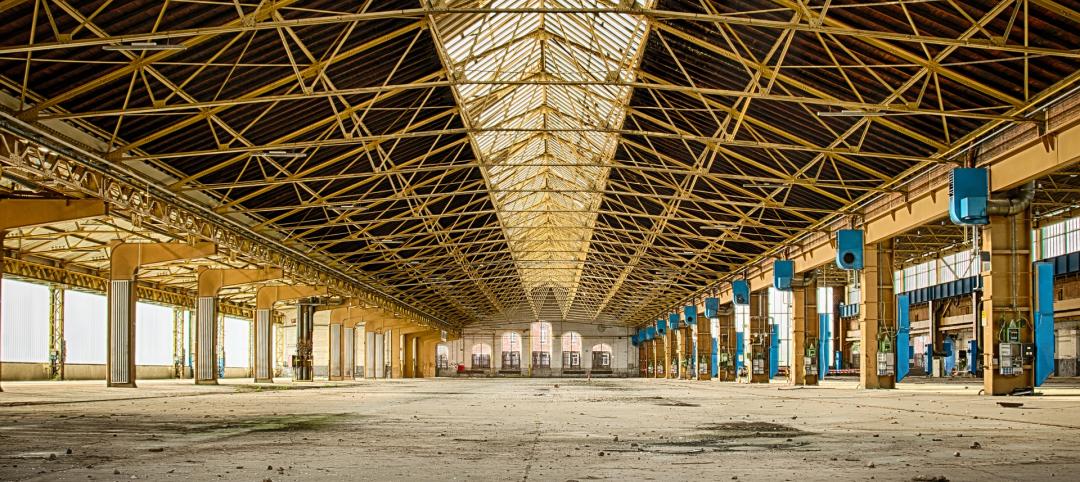The way the federal government analyzes intense rain events isn’t keeping up with the reality of climate change, and that has serious implications for infrastructure projects and the availability of, and rising cost of, flood insurance.
Severe rainstorms, sometimes described as “atmospheric rivers” or “torrential thunderstorms,” are making the concept of a “1-in-100-year flood event” obsolete, according to a report from First Street Foundation, an organization focused on weather risk research.
These events are occurring more frequently due to the impact of climate change, but federal rainfall analysis, managed by the National Oceanic and Atmospheric Administration, isn’t keeping up with the new weather conditions, First Street says.
Half the people in the U.S. live in a county where a 1-in-100-year flood is at least twice as likely now as it had been in the past, coming once every 50 years instead of every 100 years. In some areas, a so-called “1-in-100-year” rainfall could now happen far more frequently—as often as every 5 to 10 years.
The outdated analysis has serious implications for the way infrastructure projects are initiated and designed. And, because FEMA’s federal flood insurance program greatly underrepresents the number of people that could fall into FEMA’s Special Flood Hazard Areas, millions of Americans may be unaware of their current flood risk.
Inaccurate flood risk data due to underestimating the impact of rainfall also impacts the cost and availability of flood insurance—this is especially true for property that isn’t close to the ocean or inland bodies of water.
The government is working to remedy the situation, though. NOAA, as reported by CNN, says it is working on a revamped approach to its rainfall analysis that is expected to be completed in 2027.
Related Stories
Codes and Standards | Apr 8, 2022
Dept. of Energy boosts energy efficiency standards for federal buildings
The Department of Energy’s recently released new energy efficiency standards for federal buildings.
Codes and Standards | Apr 7, 2022
Uptake of low-carbon materials expected to get a boost from federal building plan
Low-carbon materials will get a sizeable boost via purchases through a federal $3.4 billion building plan to modernize U.S. border crossings.
Codes and Standards | Apr 6, 2022
ABC and AFSP form partnership on mental health and suicide prevention in construction
Associated Builders and Contractors and the American Foundation for Suicide Prevention recently formed a partnership to address mental health and suicide prevention in the U.S. construction industry.
Codes and Standards | Apr 5, 2022
New York City chooses 20 firms for architectural design services on future public building projects
The New York City Department of Design and Construction (DDC) has contracted with 20 firms to provide architectural design services for the city’s future public buildings projects under the latest round of DDC’s Project Excellence Program.
Codes and Standards | Apr 4, 2022
Construction of industrial space continues robust growth
Construction and development of new industrial space in the U.S. remains robust, with all signs pointing to another big year in this market segment
Legislation | Apr 1, 2022
American Bird Conservancy doubles capacity to test bird-friendly glass
American Bird Conservancy (ABC), working with Washington College in Maryland, says it has doubled its capacity to test and rate glass and other materials for their ability to deter bird collisions.
Modular Building | Mar 31, 2022
Rick Murdock’s dream multifamily housing factory
Modular housing leader Rick Murdock had a vision: Why not use robotic systems to automate the production of affordable modular housing? Now that vision is a reality.
Legislation | Mar 31, 2022
Bill in Washington State would fund seismic retrofits in schools
A bill recently passed by the Washington State Senate could unleash hundreds of millions of dollars for school seismic retrofits over several years.
Legislation | Mar 30, 2022
Wisconsin legislators expand the scope of interior design in the state
Legislators in Wisconsin passed a bill, quickly signed into law by the governor, that codifies holistic interior design legislation and significantly expands the scope of interior design in the state.
Legislation | Mar 28, 2022
LEED Platinum office tower faces millions in fines due to New York’s Local Law 97
One Bryant Park, also known as the Bank of America Tower, in Manhattan faces an estimated $2.4 million in annual fines when New York City’s York’s Local Law 97 goes into effect.

















